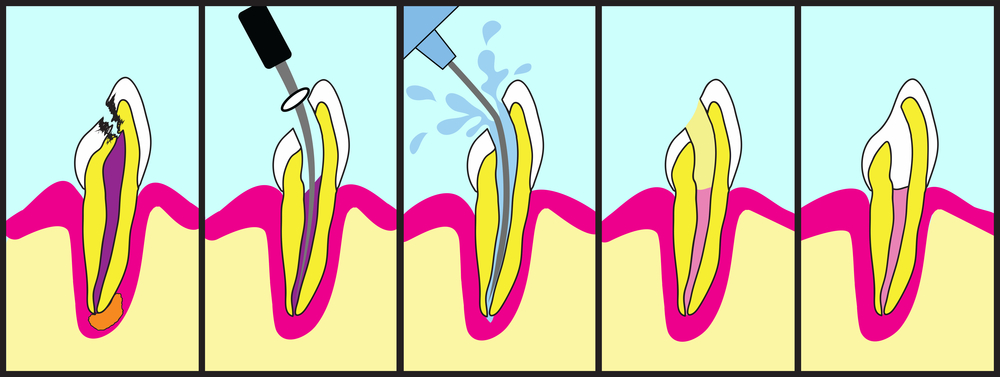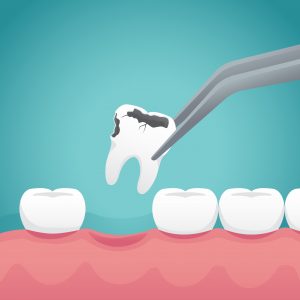What exactly is a root canal?
A root canal can be considered to be a treatment for repairing and saving a tooth that is badly infected or decayed. The pulp of the tooth might become infected because of decay, large fillings, or repeated dental procedures. During the procedure of a root canal, the pulp and the nerve will be removed and the inside will be cleaned properly and sealed.
In case there is no proper treatment, the tissue encircling the tooth might become infected forming an abscess in the long run. Even though root canal treatments can be quite painful, the procedure is less painful as compared to placing a filling.

Benefits of root canal treatment
With the advent of technology, the root canal treatment process has become quite simple these days. Below, we have mentioned some benefits provided by root canals at present.
- Does not allow the neighboring teeth to become infected
Tooth decay or toothache is caused when the tooth cavity becomes infected. However, root canal therapy will aid in getting rid of the bacteria causing the infection. The tooth will become disinfected after the bacteria have been removed, and this will stop tooth decay as a result. Once the infection has been treated, it will not be possible for the bacteria to spread.
- Helps to save teeth
Root canal treatment will aid in saving your teeth, and there is no need to be concerned about losing any tooth or suffering from a gap between your teeth. Your tooth is going to become healthy following the root canal therapy and it will start functioning just like other teeth.
- Does not allow the jawbone to degenerate
Preservation of your tooth is amongst the most notable benefits offered by root canals right now. Your jawbone will remain intact once your teeth become preserved. As a matter of fact, your jawbone might degenerate over time in case there is any missing tooth within your mouth.
- Improves oral health
The oral health of an individual can be affected to a great extent by severe tooth decay. Poor oral health might result in further health ailments such as respiratory infections, dementia, gastrointestinal infections, diabetes, cardiac ailments, and so forth. In this way, a tooth which is infected can lead to severe health conditions in the long run. However, root canals will aid in enhancing your oral health which will improve your overall health as well.
Who is root canal for?
A root canal is a common yet complicated dental procedure. The primary objective of the dentist will be to make the tooth roots clean and the space has to be sealed using a biocompatible material. A root canal is a procedure that can happen to an individual of any age. In case you have the following symptoms it will be prudent to go for root canal treatment over at https://pathwaydentalgroup.com/santa-barbara
- Tooth pain
If the pain in your tooth is bothering you all the time or it is coming back again and again, it will be sensible to ask your dentist whether you are in need of root canal therapy. Bear in mind that tooth pain can be caused by other factors as well. Visit your dentist at https://theartofsmile.com/ to see if they can help.
- Sensitivity to cold and heat
It might be the fact that your tooth hurts when you are consuming warm food items. Or it might feel sensitive when you are drinking cold water. This sensitivity can appear like a sharp pain or dull ache. A root canal might be imperative for you in case this pain continues for a considerable period of time.
- Discoloration of the tooth
Your tooth might become discolored in case the pulp in the tooth becomes infected. Tooth pulps might die if the blood supply is not adequate. In such cases, root canals will be the only option.


 y surgical procedure carried out in or around your mouth and jaw area. This type of surgical procedure is usually performed by a professional dental expert who’s very educated and skilled to carry out these certain types of oral surgeries. The facts remain true that there are many kinds of oral surgery today.
y surgical procedure carried out in or around your mouth and jaw area. This type of surgical procedure is usually performed by a professional dental expert who’s very educated and skilled to carry out these certain types of oral surgeries. The facts remain true that there are many kinds of oral surgery today.
